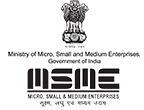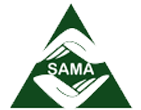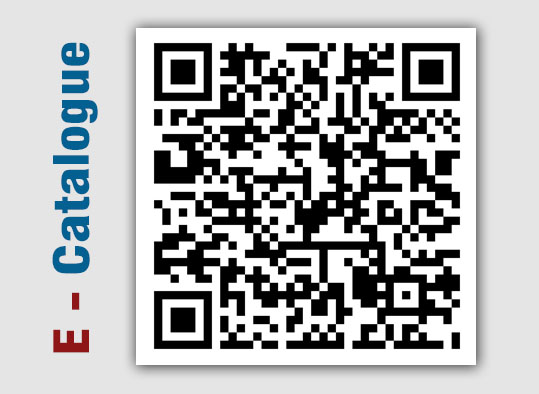OVERVIEW OF NFPA 99, HEALTH CARE FACILITIES CODE

NFPA 99, Health Care Facilities Code, is a widely recognized standard developed and published by the National Fire Protection Association (NFPA) that provides the minimum requirements for protecting life and property in healthcare facilities. The standard is intended to reduce the risk of fire, explosion, and other hazards that can lead to injury, death, or damage to healthcare facilities.
The standard is divided into three parts:
Part 1:
General: Which provides the general requirements for the protection of life and property in healthcare facilities.
Part 2:
Electrical: Which provides the specific requirements for the electrical systems and equipment in health care facilities.
Part 3:
Mechanical: Which provides the specific requirements for mechanical systems and equipment in health care facilities.
➦ What Does NFPA 99 Cover?
The standard covers a wide range of topics, including fire protection systems, emergency power systems, hazardous materials management, and life safety systems. It also includes specific provisions for different types of healthcare facilities, such as hospitals, nursing homes, and ambulatory care facilities.
One of the most important aspects of the standard is the requirement for regular inspection, testing, and maintenance of all fire protection and life safety systems in healthcare facilities. This includes sprinkler systems, smoke alarms, emergency lighting, fire doors, firewalls, and other fire-resistance-rated construction.
The standard also includes emergency preparedness and response requirements, including developing emergency plans and training staff to respond to emergencies.
➦ Important Points to Remember
It's important to note that compliance with NFPA 99, Health Care Facilities Code, is not mandatory; it is used as a basis for insurance, building and fire code enforcement, and is used as a reference for fire safety professionals in health care facilities.
In summary, NFPA 99, Health Care Facilities Code, is an important standard that provides the minimum requirements for the protection of life and property in healthcare facilities. It covers a wide range of topics, including fire protection systems, emergency power systems, hazardous materials management, and life safety systems. By complying with this standard, healthcare facilities can reduce the risk of fire, explosion, and other hazards, and ensure the safety of patients, staff, and visitors.
➦ What types of facilities does NFPA 99, Health Care Facilities Code, apply to?
The standard applies to all types of healthcare facilities, including hospitals, nursing homes, and ambulatory care facilities.
➦ Does NFPA 99, Health Care Facilities Code, apply to office-based surgery practices?
Yes, the standard applies to office-based surgery practices considered healthcare occupancies.
➦ How often does a healthcare facility need to be inspected for compliance with NFPA 99?
The standard requires annual inspections for all healthcare facilities, as well as more frequent inspections for certain components or specific conditions.
➦ What are the requirements for emergency power systems in healthcare facilities according to NFPA 99?
The standard requires emergency power systems to provide lighting, power, and other services necessary to ensure the safety of patients, staff, and visitors during an emergency. The standard also requires regular testing and maintenance of emergency power systems.
➦ Are there any specific requirements for hazardous materials management in healthcare facilities according to NFPA 99?
Yes, the standard includes specific requirements for the management of hazardous materials, including the storage, handling, and disposal of hazardous materials, as well as emergency response procedures.
➦ Is compliance with NFPA 99, Health Care Facilities Code, mandatory?
Compliance with NFPA 99 is not mandatory; it is used as a basis for insurance, building and fire code enforcement, and as a reference for fire safety professionals in healthcare facilities.
➦ How often is NFPA 99, Health Care Facilities Code, updated?
The standard is updated every three years to reflect the latest research and best practices in fire safety for healthcare facilities.
➦ How are The Joint Commission and ACHC related to NFPA 99?
The Joint Commission (TJC) and Accreditation Commission for Health Care (ACHC) are two independent organizations that accredit and certify healthcare organizations and programs in the United States. Both are non-profit organizations aiming to improve healthcare quality and safety. They evaluate healthcare organizations based on a set of standards, and the healthcare organizations must meet these standards in order to achieve accreditation from them.
NFPA 99, Health Care Facilities Code, is one of the standards that TJC and ACHC reference in their accreditation process. It is considered a national standard for protecting life and property in healthcare facilities. It provides the minimum requirements for the protection of life and property in healthcare facilities. Both TJC and ACHC use the standard as a reference for fire safety professionals in healthcare facilities, as well as a basis for insurance and building and fire code enforcement. Therefore, TJC and ACHC require that healthcare organizations comply with relevant NFPA codes and standards, including NFPA 99, as part of their accreditation process.
Both TJC and ACHC use NFPA 99 as one of the standards for evaluating the fire safety systems and processes in healthcare facilities to ensure the safety of patients, staff, and visitors. Therefore, organizations that are accredited by TJC and ACHC must comply with the requirements of NFPA 99 in order to maintain their accreditation status.
(This "Fire Safety Blogs" Published in August 2023 Edition)













